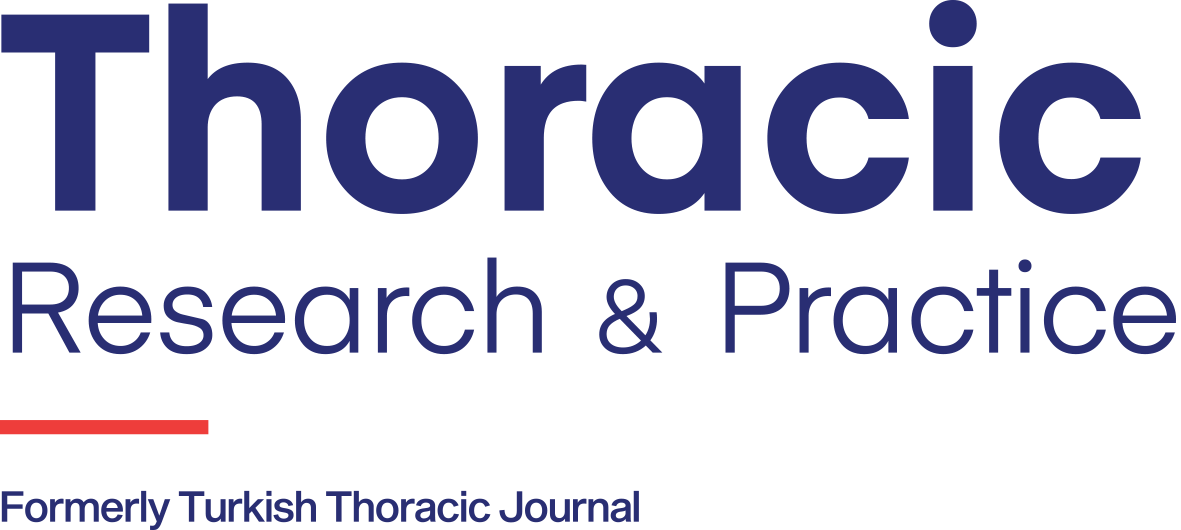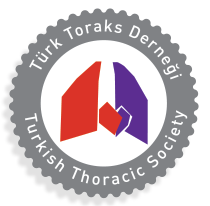Abstract
Abstract
The retrospective evaluation of the surgical treatment approaches of thoracic empyema was performed at Kayseri State Hospital from January 1994 to June 2001. Hospital file records of 60 consecutive patients with thoracic empyema whom were treated surgically in the thoracic and cardiovascular surgery department of our hospital were evaluated retrospectively for symptomatology, diagnostic studies, treatment procedures and outcomes. The mean age was 28.5 years (range, 1 to 92 years) and male/female ratio was 42/18. The most common symptoms were fever, chest pain, cough, fatique and dyspnea. The causes of empyema were pneumonia in 51 patients, pneumothorax in 3, trauma in 3, iatrogenic in 2, and lung cancer in 1. Twenty-seven patients underwent tube thoracostomy, 15, tube thoracostomy and intrapleural fibrinolytic therapies, 6, tube thoracostomy and pleural decortications, and 12, direct pleural decortications. The mean duration of drainage and hospitalization were 11.5 and 14 days in tube thoracostomy, 13.3 and 15.2 days in intrapleural fibrinolytic therapy, and 5.1 and 16.8 days in pleural decortication, respectively. There was no need for pleural decortication in patients who underwent intrapleural fibrinolytic therapy, whereas 6 (18%) patients who had tube thoracostomy were required pleural decortication. Thirty complications have developed in 20 (33%) patients. The most common complication was residual pleural space. Mortality was 3.3%. Treatment should be started as early as possible in thoracic empyema. Choosing stage-dependent treatment modality is principal. Especially, intrapleural fibrinolytic therapy or thoracospocis procedures may prevent an unnecessary thoracotomy in fibrinopurulent stage. On the other hand, if necessary a pleural decortication should not be avoided.



